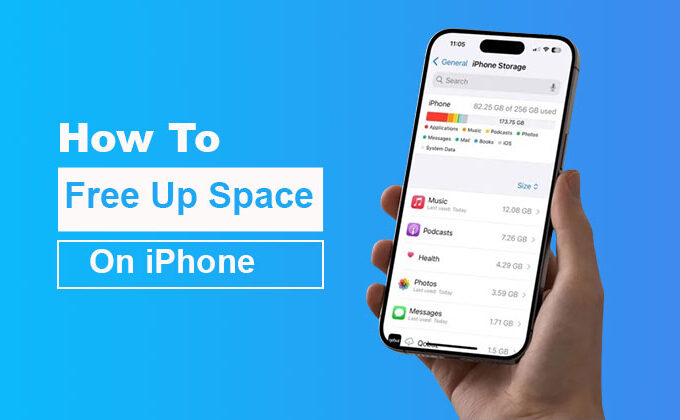A lot of creators have been drawn to Patreon but it’s not the only choice on the market. Many Patreon alternatives provide creators with greater monetization options and exposure for less.
What is Patreon?
Patreon is an online crowdfunding platform which allows recurring payments to aid the work of a creator. In contrast to other membership platforms, Patreon was not founded on the swap of fees for membership in exchange for rewards for members. It was initially a patronage system where donors could give back to creators who believed in the work, and in time, added additional features.
Top 10 Patreon Alternatives for Digital Creators
Here is a list of Top Patreon alternatives for digital creators that offer membership support, fan engagement, and monetization to help grow your creative business.
1. Mighty Networks
Mighty’s flexible Spaces blend features like live stream, management of members’ classes, live events, and a variety of content options. Similar to Patreon, you can also make subscription tiers or different bundles (e.g. courses, events, premium livestreams, etc.)
As opposed to many other alternatives to Patreon, there isn’t any other platform, and you don’t need to mix and combine platforms. Mighty offers everything you’ll ever require to earn money and is packed with the features and tools needed to build a vibrant community and host all your content, and then market your content worldwide.
Mighty is also a pioneer in AI for community members, using Mighty Co-Host(tm) that allows you to instantly create profiles for members and connect members, enhance your writing, and instantly create landing pages. It can make your job much easier as a writer.
Pros
- Mighty Networks mixes memberships with information, discussion forums, live events, livestreaming, chat, messaging and more!
- You stop the content treadmill when your members take charge of the way and build long-lasting relationships.
- New features, like community AI apps that work on every device and even a branded app when you’re in the mood.
- ConvertKit integration is built-in to help you get the most out of emails.
Cons
- Not free only Paid
2. ConvertKit
With ConvertKit it is possible to charge for subscriptions to newsletters effortlessly, managing everything on the platform.
ConvertKit can also help you create your email list using amazing opt-in templates. Additionally, you can organize and segment your customers. Automated messages can be created easily and visually, directing various email routes.
Additionally, ConvertKit effortlessly integrates easily with Mighty Networks to build an incredible community with your email list. This is a powerful combination for digital businesses.
Pros
- Easy to create, and make it easy to sell newsletters easily and sell
- Create stunning (hosted) page landings based on templates
- Automate and segment your mailing list
- Integrates seamlessly into the Mighty Networks community
Cons
- It’s not equipped with the “front page” style search feature. You’ll have to add your customers.
Also read: Top Apps Like Cash App | Cash App Alternatives
3. Medium
For bloggers thinking of Patreon as a method to make money from your blog, Medium could be a good alternative. Medium is a writer’s network and a blogging platform that was once thought to be a purely free Patreon alternative platform to start blogs. However, it has grown to a massive readership and Medium has added opportunities for writers to make money.
First, what do you get from Medium? There is a built-in audience for your writing and opportunities to connect and share among other authors. The website looks fantastic and readers can even leave comments on your blog post. You can also gather the users of Medium and then regularly send newsletters to those who are on Medium.
Medium’s monetization system doesn’t offer you much. It’s been reported that it is only 9 percent of medium-sized bloggers earn more than $100 per month. It’s a shame when there are a myriad of platforms to earn money from. Since you don’t have control over your followers on Medium, the process of building it is likely more about exposure than earning money. And even if it’s possible to find more effective ways to share your writing to the world.
Pros
- Beautiful interface, which publishes stunning blogs.
- An audience built-in to read
- Certain monetization options
Cons
- The monetization options aren’t the best
- You don’t have the right to your audience. sending traffic towards Medium
- There aren’t many features for community building (other than comments)
4. Ko-Fi
Ko-Fi is a different alternative to Patreon that focuses on a low-risk, friendly support system for supporters to help creators. As the name suggests, it is a way to think of their paid member support as buying the creator a cup of coffee.’
The platform is free to begin with and lets creators create simple albums that they can share with their followers. It allows you to write blog posts, set support goals, and create locked content for monthly subscriptions. In contrast to Patreon, Ko-Fi doesn’t charge a fee for member donations, also. In addition, you get paid each time a fan joins or makes a donation instead of a monthly lump sum.
Pros
- There is no fee for the platform with Ko-Fi to accept donations. You can take payment via Stripe and PayPal.
- It’s simple to begin and authors can use a few tools to make articles, album content, and even charge subscription fees.
Cons
- Ko-Fi isn’t the most effective solution for analytics or community management.
- It’s mostly a way to provide supplementary content for creators who publish content elsewhere.
5. OnlyFans
Onlyfans is a different option to Patreon, which does offer many of the same features. Although it has a reputation for content that is adult-oriented, OnlyFans is a great way to monetize any creator through the subscription model. You can share and create video content and images. Similar to Patreon, you can create subscription levels and provide various rewards for every level.
It comes with a variety of ways to connect with your customers than Patreon does, including messaging and more content options, and a better community-building.
While OnlyFans is likely to be the best Patreon alternative, there are some drawbacks. For one, the platform has been made synonymous with adult-oriented content. While you can make and even monetize other types of content, however, the platform may be associated with a stigma.
Pros
- Similar to Patreon, using the same ideas, membership, different tiers, subscriptions, and tiers.
- More content and features for engagement than Patreon.
Cons
- Some stigmas since the platform is directed towards adult-oriented content
- OnlyFans charges 20% transaction fees!
6. Etsy
If you make any type of creative product, Etsy might be a better choice than Patreon. You can certainly use Etsy to sell your creations. You could also look into various ways to market your work.
If, for instance, you’re an oil artist, can you offer prints of high-quality on Etsy?
The support of patrons being an artist can be great, however, it’s more profitable to sell your artwork directly.
Pros
- A global marketplace for customers
- Traffic from search engines, and a fantastic review system of search engine traffic, and an amazing
- A well-known brand that consumers have a common interest in shopping
Cons
- A 6.5 per cent cost!
- There is no way to control the algorithms. You may have to find your customers.
- There are limited options to create your brand
7. Kajabi
Kajabi is an online platform for course creation which combines a top LMS with a range of marketing tools. With features such as funnels for marketing and landing pages and advanced options for customization, Kajabi course creators have an arsenal of tools for marketing and selling their courses. Plus, with integrated email capabilities and marketing tools, Kajabi has a lot to offer.
Kajabi is a Patreon alternative for those who need a complex marketing system and pre-recorded training courses. It’s not ideal for live-streamed courses. It’s also an online community platform, it’s distinct from the other products, with an entirely different login and app that makes it a hassle to mix courses and community.
Pros
- Solid LMS that has advanced features to create content, drip material, and the evaluation of.
- Create landing pages and marketing funnels.
- Available with a great application that works on every device.
Cons
- It’s also the most expensive option on this list.
- It’s not a great fit in cohort classes (live) or for community.
8. Podia
Podia is one of the best Patreon alternatives that gives creators the option of selling online courses and other types of digital content as separate products. In 2017, however, Podia entered the world of paid membership sites providing creators with the option to charge subscription fees for content. Podia has a variety of choices for creators interested in exploring paid memberships.
Pros
- It is possible to charge online classes, paid subscriptions, and even standalone products.
- Podia doesn’t receive any of the profits from the support of your members (although you pay a monthly subscription to use Podia’s service).
Cons
- The cost of the membership service is $79/month, and you’ll need to pay an additional $39 per month for marketing services and the capability to offer online courses and digital content.
- The data on analytics is limited and there aren’t many features for community management.
9. Buy Me a Coffee
Buy me a Coffee is a Patreon alternative that operates similarly. It’s designed for musicians, creators and artists. To provide a tiny amount of money for the artist. It is common to see this “Buy me a Coffee” hyperlink on blogs, websites, Linktree, etc.
Create an account that showcases your content and creations, and also link to other sites. With a focus on one-time, small payments, it is also possible to make content that is only available to members through Buy Me a Coffee, and it’s a straightforward way to make money similar to Patreon.
However, they do charge a transaction fee of 5 percent, which is similar to Patreon’s lowest price, they don’t charge more transaction costs. The reason is that transaction fees drain money from the creator’s pockets, Buy Me a Coffee does slightly better than Patreon.
Pros
- It’s a patronage system like Patreon
- Make one-time payments or offer regular memberships
- Make sure your subscribers receive benefits
- Create profiles and then share your work
Cons
- Transaction fees (5 5 percent) still shaved creators’ profits
- There are very few ways to interact with your customers. No alternatives for community engagement.
10. Kickstarter
Kickstarter is different from Patreon in the fact that this is an “all-or-nothing” funding approach, you have to establish your goals, and if you don’t meet those goals, you don’t receive funds. You can, however, create pages to showcase your ideas and then share the ideas with prospective supporters. Similar to Patreon, you can design rewards for your top backers, with product-based projects, which usually grant an access point to your project.
Kickstarter is an amazing platform and has spawned some incredible projects. For instance, the top-selling books in the collection “Good Night Stories for Rebel Girls” were launched thanks to 13,000 backers on Kickstarter.
For creators who are looking for Patreon alternatives, this is a little restrictive. It’s ideal for a person who has a singular project that they’d like to make and that has a clear beginning and a clear end. This is not the best option for support that continues regularly.
Pros
- Find backers to fund them.
- Make money through the platforms of numerous users
- Innovative strategies to reward supporters
Cons
- It’s not a good idea for continuous memberships or ongoing assistance
- If you don’t receive any money, then you won’t receive anything.
Conclusion — Choose the right Patreon alternatives
When exploring Patreon alternatives, think carefully about platforms that align with your monetization goals. Ko-fi and Buy Me a Coffee are excellent platforms for small donations while Medium and Ghost specialize in newsletter creators. Podia offers subscription-based models while ConvertKit, Kajabi & Mighty Networks can all provide additional revenue streams – select one suited to your audience & content strategy to maximize growth!















Leave a comment